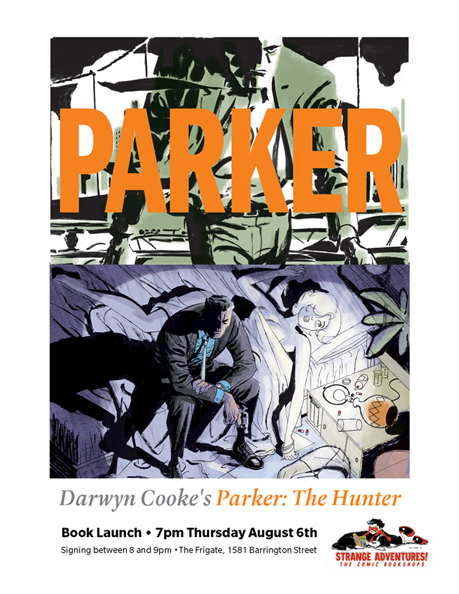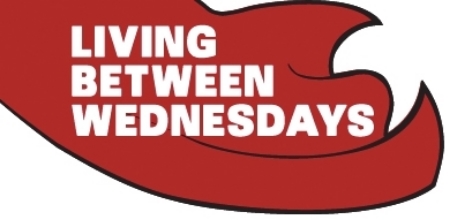
It seems as though writer/artist Darwyn Cooke has been a fixture of the comic industry a lot longer than he has. Consider this—his breakthrough graphic novel, Batman: Ego, was released a mere nine years ago, showcasing a creative sensibility already finely honed by years spent in design and animation. Since then, Cooke has increased his profile with his work on Catwoman (first with the original graphic novel Selina’s Big Score, and followed by penciling duties on the most recent run of the ongoing series), his epic re-imagining of the Justice League’s origin in the New Frontier miniseries, and his relaunch of Will Eisner’s The Spirit. Cooke entered the comics field with a clear idea of what he wanted to do and how he wanted it done, and that straightforwardness of purpose has never been more clear than in his latest graphic novel, an adaptation of Richard Stark’s (AKA Donald Westlake) first Parker novel, The Hunter, available at finer comic and book stores everywhere July 22.

The Hunter formed the basis for the 1967 film Point Blank, starring Lee Marvin, and 1999’s Payback with Mel Gibson. However, unlike its cinematic ancestors, Cooke’s graphic novel sticks to the book’s plotline exactly, following tough-as-nails professional thief Parker as he punches, chokes, stabs, and shoots his way to the top of a criminal organization known alternately as the Outfit, the Syndicate, or the Organization. We learn through various flashbacks that Parker was betrayed and left for dead on his last job by both his wife and his fellow thieves, and after a stint on a work farm for vagrancy, Parker hits the mean streets of New York looking for satisfaction (and the $45,000 that constitutes his end of the job’s take). As Parker works his way up the food chain, he learns that the money from the heist was used to pay off an outstanding mob loan, which means that the only way for him to get it back is to shake down the Organization for it. Outnumbered and outgunned, Parker nonetheless meets the criminal conspiracy head on, bumping off various lieutenants and assorted underlings in order to instigate a final showdown.

In the first of four proposed hardcover Parker graphic novels for IDW publishing, Cooke has stripped his style down to the bare essentials, in a way that matches Stark’s famously blunt prose. The only colour that appears is a gunmetal blue tone, and even the panel borders have disappeared. The result is a sparse, high-contrast look that resembles images glimpsed in the muzzle flash of a pistol. The book’s 1962 setting allows Cooke to run wild with the kind of settings and fashions that clearly grip his imagination. The confident, no-nonsense storytelling doesn’t lead you by the hand—for instance, at one point Parker uses a pocket knife to disfigure a corpse before hiding it, and we don’t learn why for several more pages. However, there’s never any doubt that we will learn why, and that the answer will make perfect sense. As a character, Parker is wholly unsympathetic; at one point, he accidentally kills an innocent woman while attempting to subdue her. He doesn’t even really register remorse over this, but instead finds a way to use her death to create a distraction that brings him closer to his prey. Stark and Cooke never ask us to empathize with Parker, though—we’re merely witnesses to his relentless pursuit of what he sees as fair retribution. Readers seeking morally upright, or at least morally conflicted, protagonists might want to look elsewhere. The Hunter feels exactly like the book Darwyn Cooke was born to do, in terms of setting, characters, and subject matter. Reading it, you can tell he had the time of his life creating it, and that kind of enthusiasm is always infectious.








